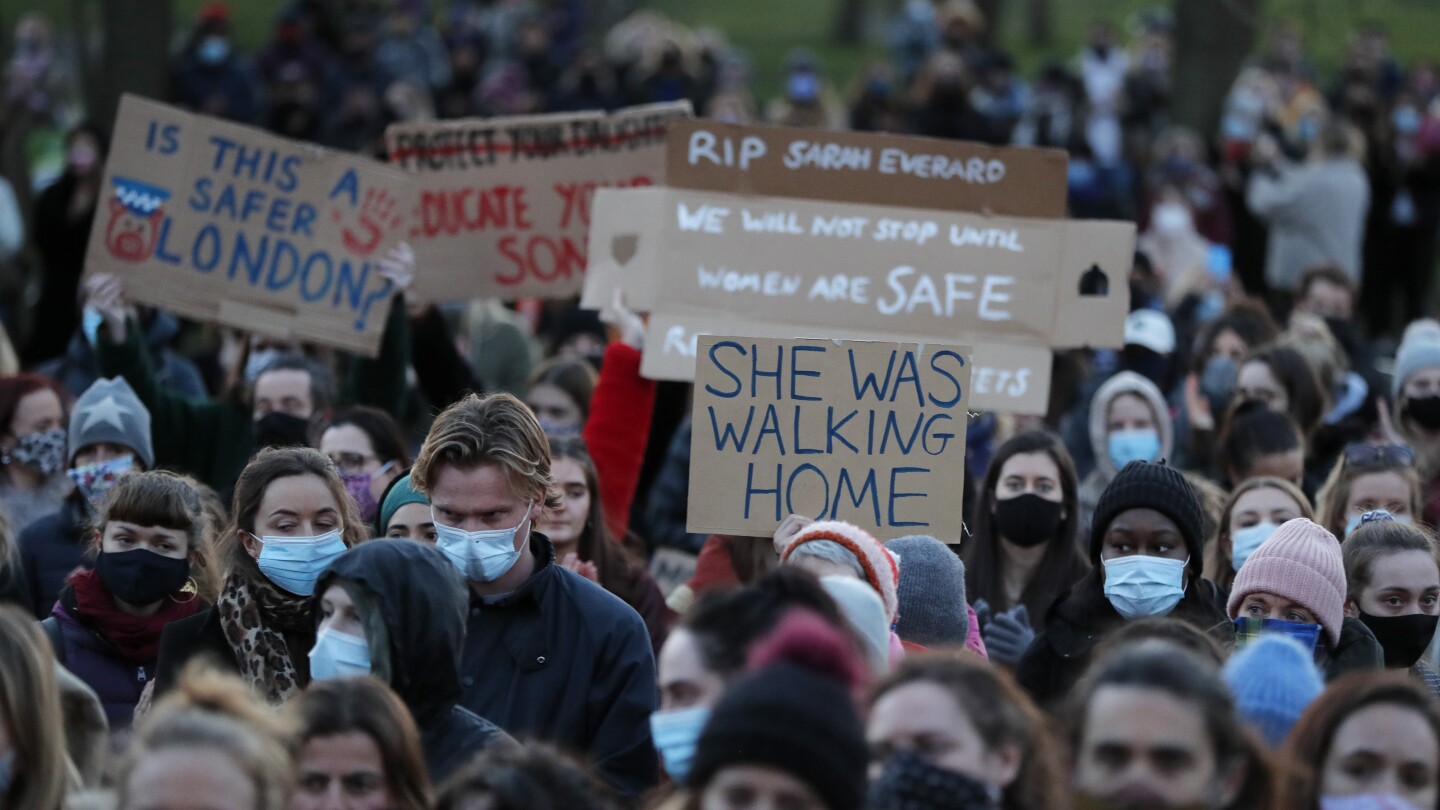LONDON (AP) — British police have paid damages to two protesters who were arrested while attending a vigil for a woman murdered by a serving police officer. Thursday’s announcement comes as the London force tries to rebuild trust after a series of incidents that exposed racism and sexism within its ranks.
Patsy Stevenson and Dania Al-Obeid were detained at the March 2021 protest vigil in London, which police said violated pandemic lockdown rules in place at the time.
The gathering was called after Sarah Everard, a 33-year-old London woman, was abducted and murdered by an off-duty Metropolitan Police officer as she walked home at night.
The crime shocked the country, angered many women and raised questions about a police force that unknowingly harbored a murderer in its ranks. Police officer Wayne Couzens later pleaded guilty to Everard’s murder and was sentenced to life in prison.
A planned vigil was canceled after police told organizers it would violate coronavirus restrictions, but hundreds of people attended a spontaneous gathering — including Catherine, the wife of Prince William, who laid flowers. Police later moved in to disperse participants, arresting some. Images of women being restrained and led away in handcuffs — especially a picture of Stevenson being pinned down by officers — sparked wide criticism.
The High Court later ruled police had acted unlawfully in using coronavirus rules to block the vigil, and Stevenson and Al-Obeid sued the police force.
The Metropolitan Police said Thursday that the protest had taken place in the “extraordinary circumstances” of a global pandemic.
“A protracted legal dispute is not in the interests of any party, least of all the complainants who we recognize have already experienced significant distress as a result of this incident,” it said. “The most appropriate decision, to minimize the ongoing impact on all involved, was to reach an agreed settlement.”
Terms of the settlement were not disclosed. Police Commander Karen Findlay wrote to Stevenson and Al-Obeid, acknowledging that they “understandably” felt “badly let down by the Met.”
“I regret that your opportunity to express your grief and anger was curtailed by your arrest and removal,” she said, while defending the overall policing plan and the “extremely difficult challenge” officers faced.
The two women accepted the settlement, saying the experience of taking on the police had been exhausting. Stevenson said “it has felt important to push for some form of accountability and justice for myself and all women who attended the vigil.”
Al-Obeid said the experience had been “incredibly difficult” and that “‘badly let down’ is an understatement. I have felt abused, abandoned by the police prior to, during and post the vigil – I do not feel protected or safe with any police force.”
The Everard murder and the police handling of the case was one of a string of controversies over racism and misogyny that undermined public confidence in Britain’s biggest police force and forced the resignation of Metropolitan Police Commissioner Cressida Dick last year.

